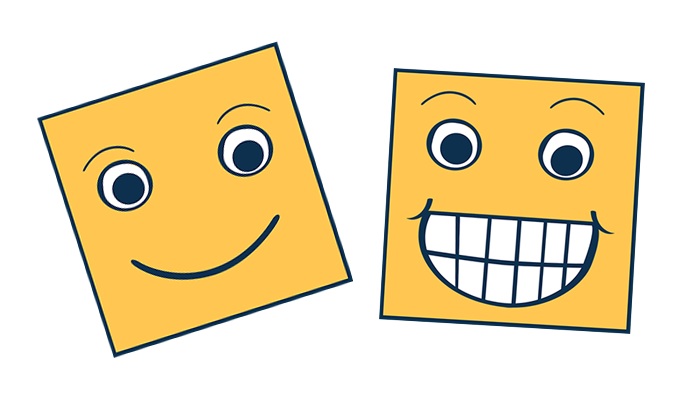How are you? Are you happy?

Like, right now, at this moment, are you blissful? Do you currently feel that rush of neurochemicals permeating your brain causing a sense of joy? What I’m saying here is, do you presently possess a combination of elevated levels of endocannabinoids, dopamine, serotonin, oxytocin and endorphins that is unique to your brain chemistry resulting in a sense of pleasure and enjoyment?
‘Cause you are supposed to be happy right now. In fact, you are supposed to be happy all the time.
I believe this because I was taught from a young age that our purpose in life is to be happy. The religion of my youth says “Men are, that they might have joy.” My country was founded on the principle that I have a basic right to pursue happiness. Various forms of media have pummeled me with information on how to be happy, if only I just… {insert “X” here}.
X = {Serve Others, Find Love, Give Love, Live With Purpose, Find God, Lose God, Take Drugs, Stop Taking Drugs, Be a Vegan, Eat Like a Caveman, Exercise, Eat Chocolate, Eat More Chocolate…seriously – all you need to do is have some yummy chocolate!}
Something must be wrong with me!
I believe this because for the majority of the past year I’ve been using WeFeel to track my emotions. Turns out, generally, I’m content at most; and that revelation was just depressing. Depressing to the point that sometimes I just stop tracking how I feel because I don’t want the reminder that I’m failing at my purpose in life. I created the service to help myself and others understand emotion and what I found so far was that I must be doing life wrong.
This idea that we are supposed to be happy didn’t originate with some genetic memory I’ve had since birth. It was given to me by parents, teachers, religious leaders and, probably more than it should have been, television. In much of western culture we are taught from a young age that our default emotional state should be one that needs to be chemically induced in our brains (take away the right chemicals and no more happy feelings for you!).
Then we obsess about finding “true” happiness (whatever that means…is there a fake happiness?), and stress about the times when we aren’t living up to that lofty goal. The end result being that we often end up self-inducing a state of anxiety (also caused by brain chemistry) worrying about why we aren’t in a different chemical state.
How weird is that?
20-Something Years of Dissonance
In the early 90s I had the chance to live in Taiwan for a couple years. Talk about culture shock. I was there to spread the word that western religion brings happiness. And I kept running into all these happy Buddhists. A key tenet of many of the forms of Buddhism is that life is suffering, life is pain. The exact opposite of what I was taught, that life is about being happy. Yet there they were, all these miserably happy people. What gives? It took me decades to figure out that what I thought about happiness, maybe wasn’t all that correct.
In an earlier post I wrote about the comedy special “Make Happy” and it wasn’t a really happy post. You are probably thinking, “Yeah, but this one is even worse. Now you are telling us we aren’t even supposed to be happy.” But I’m really not trying to bring you down here. I just want you to stop for a moment, and think about what you think about being happy.
There are so many things that can make us happy, and that is great! But there are also plenty of other experiences that make us feel our other emotions in all their varieties. Why did someone, at some point, come up with the idea that out of all the emotions we can feel, we should pick “happy” as our default state? Could they possibly have been influenced by the fact that when we are happy, dopamine, the “reward molecule,” is released? It’s a cycle that makes us want to be happy. Being happy feels good! And here is the epiphany I’ve found in pondering the essence of “Make Happy:”
We are happy when our brain is flooded with certain chemicals. Our base state of existence therefore cannot be happy – because if it were, you wouldn’t have to add neurochemicals to get there! This isn’t about philosophy, it’s simple chemistry.
I’ve been wrong my whole life about happiness. I’ve been trying to pursue being happy all the time when in reality that doesn’t even make sense. From a purely chemical standpoint, if you constantly had the same levels of the neurochemicals that induce a state of euphoria you’d become immune to the feeling, and would then need more of those chemicals to feel joy. Being constantly “full of joy,” chemically speaking, is nonsense and physically impossible.
Stop obsessing about happiness, and you just might end up happier.
So we’ve established that a constant state of happiness is illogical. By letting go of that pursuit we can stop the stress and anxiety of when we don’t live up to our expectations. We don’t have to be happy all the time. I’m not saying we shouldn’t do things that make us happy. I’m saying it’s OK to just be who we are when we are not happy.
In doing so, we can give ourselves the chance to embrace the whole experience of life. It turns out that by creating a tool to help people understand emotion, I’ve accidentally created a way to see through some of my own flawed beliefs. I’ve learned that sometimes I’m afraid, or sad, or just downright angry and I don’t need to try to find a way to turn those emotions into some level of joy.
And that makes me happy.
We want to hear your story. Become a Mighty contributor here.

